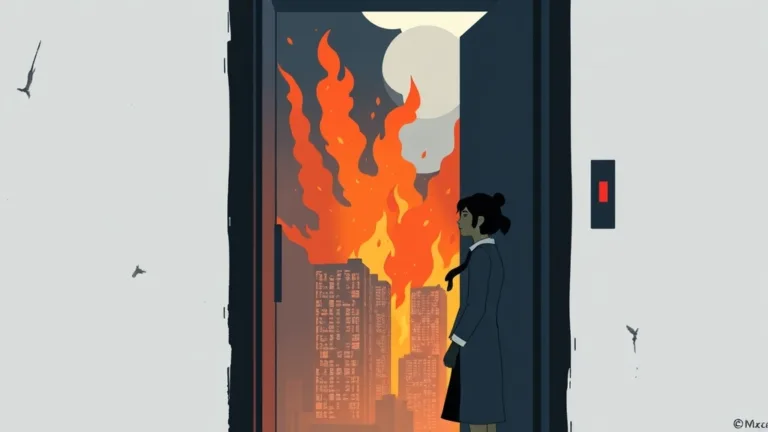On the evening of May 29, 2007, Romy Baligula, a 29-year-old man, strolled into a karaoke bar in San Mateo, Philippines, accompanied by a lively group of friends. Recent times had presented Romy with challenges, but he was in high spirits that night. An hour earlier, he and his companions had started indulging in alcohol, and Romy was already feeling pleasantly intoxicated as he entered the establishment. Sporting a fresh, new shirt, Romy had some money in his pocket for the first time in weeks.
Romy had been confronted with job loss a couple of months prior, and since then, his search for new employment had proven futile. His residence was in San Mateo, a city renowned for its wealth in the Philippines. Paradoxically, it was also notorious for its widespread poverty and the absence of a safety net for those facing adversity. Like Romy’s predicament, losing one’s job in this city could swiftly result in homelessness, with individuals resorting to scavenging for scrap metal and rummaging through dumpsters just to secure their next meal. This was the situation Romy had endured for most of the past two months as he lived on the streets.
However, just the day prior, he stumbled upon a trove of incredibly valuable scrap metal, promptly selling it for a handsome profit. With those earnings, he treated himself to a sumptuous dinner, a fresh new shirt, and an enjoyable night out. Romy’s ideal evening consisted of heading to a karaoke bar, as his passion for singing was unwavering, and his friends shared the same enthusiasm. It didn’t matter if Romy was gainfully employed, living the high life, or rummaging through a dumpster for sustenance; his singing remained constant.
Romy wasn’t the most skilled singer, especially compared to some of his friends with exceptional vocal abilities. However, he noticed that the more he sang, the more he improved, and he took pride in his progress as a singer. Romy was fond of singing powerful ballads; he relished the experience of closing his eyes and allowing the lyrics to transport him into the narrative. Singing was his escape, a sanctuary where he could always find solace and uplift his spirits regardless of life’s challenges.
Upon entering the karaoke bar, Romy and his friends navigated through the bustling crowd to reach the distant end of the establishment. Discovering two vacant tables, they swiftly combined them, took their seats, and promptly ordered a round of beers. As the beverages arrived, they raised their glasses to toast the fantastic night they were embarking on. Subsequently, one by one, Romy’s companions rose from their seats and journeyed to the karaoke machine, perusing the song selection and deliberating on their chosen tunes for the evening.
One of Romy’s acquaintances selected an American country tune, while another friend opted for a 1980s pop song centred on unrequited love. Regardless of the specific song choices made by any of Romy’s companions, the karaoke bar burst to life as soon as they took the stage to sing. The people of the Philippines have a profound love for karaoke; it’s an integral part of their culture. Many Filipino households have their own karaoke machines. Consequently, in karaoke establishments like the one Romy visited, the crowd exhibited immense appreciation for skilled performers who delivered exceptional karaoke renditions. They would enthusiastically applaud, dance, and join in the fun. Conversely, when subpar karaoke performers took the stage, the audience was equally swift to express disapproval, jeering and booing until they stopped.
Romy was aware that stepping onto the stage that evening involved some uncertainty. As he confidently revealed the song he intended to perform, he acknowledged it was a daring selection. Yet, he had faith in his skills. After extensive rehearsals and practice, he genuinely believed he was well-prepared to master this highly demanding song, anticipating a positive reception from the enthusiastic crowd.
As Romy sat at the table, engrossed in one of his friend’s lively renditions of a race car-themed song, the bar’s bouncer, Robolito Ortega, a 43-year-old man, approached their table with an infectious smile. Unfamiliar with Romy and his companions, who were newcomers to the bar, Robolito was eager to extend a warm welcome. Being a passionate karaoke enthusiast, he shared a common interest with everyone in the establishment. Additionally, Robolito believed that fostering a sense of camaraderie among patrons helped maintain a peaceful atmosphere in the bar. Consequently, Romy and his friends engaged in a cheerful conversation with Robolito.
After Romy’s friend finished singing the song about the race car and descended from the stage, Robolito extended a warm congratulatory pat on the back, commending his performance. In response, the friend turned to face the other side of the bar, summoning the bartender with a hand signal, signalling, “We’d like another round of drinks, please.” He also wished to treat the bouncer as a token of appreciation for the compliment.
The bouncer graciously acknowledged the gesture, replying politely, “Thank you very much.” Before long, their freshly ordered beers arrived, prompting Romy, his friends, and the bouncer to raise their glasses in a cheerful toast, marking the start of an enjoyable evening of camaraderie.
Shortly after that, it was Romy’s moment to step into the spotlight. He rose with as much confidence as he could muster, almost jogging onto the stage. He confidently approached the microphone and scanned the delighted crowd. The atmosphere was filled with positivity, and everyone appeared to be thoroughly enjoying themselves. Despite the somewhat unconventional song choice, Romy was convinced that this receptive audience would embrace it wholeheartedly, and he was determined to deliver an exceptional performance.
However, as the song started playing softly in the background, Romy immediately sensed a noticeable change in the bar’s atmosphere. The previously boisterous, cheerful chatter gave way to near-silence, with everyone in the establishment directing their attention towards the individual responsible for selecting the song. Yet, Romy had expected this reaction and understood that he could captivate and win over the audience once he began singing. He was determined to deliver a flawless performance of this song.
Without a doubt, as soon as Romy started singing, it was as if the atmosphere gradually returned to its previous state. The audience could sense that Romy was delivering a stellar performance. Approximately one-third of the way into the song, Romy couldn’t help but notice that the bar had essentially returned to its usual state. He even glanced over and spotted the bouncer, who, along with his friends at the table, had raised his beer in a gesture of approval, silently conveying, “You’re nailing it; keep it up.” Witnessing the bouncer genuinely enjoying the performance, Romy experienced a rush of adrenaline, and suddenly, he felt an overwhelming surge of confidence that prompted him to fully embrace the song. He began to dance on stage, pouring his heart into every line of the song.
However, a pivotal moment required the singer to reach a challenging high note during a particular part of the song. When Romy boldly endeavoured to hit that high note, his voice unexpectedly cracked resoundingly and unmistakably. This unexpected vocal mishap disrupted Romy’s rhythm, making it difficult for him to regain his composure. Instantly, the audience fell silent again, their expressions disapproving as if to say, “We had our doubts, and it seems this was not the best choice after all.
Romy’s attention shifted, and he noticed the bouncer. The bouncer lowered his beard, glaring at Romy as if to ask, ‘What are you up to?’ Despite feeling a bit shaken, Romy made a determined effort to regain his composure. He reminded himself of the countless times he had practised this song and believed in his ability. Despite his best efforts to refocus, he struggled to find his rhythm.
At this juncture, his attention turned towards Robolito, the bouncer. What met his gaze was a furious Robolito passionately singing the song as if attempting to drown out Romy’s off-key rendition. Then, in a startling turn of events, while Romy was locked in a gaze with Robolito, the bouncer, still singing, produced a firearm, took aim at Romy, and discharged a shot.
In the Philippines, a universally recognized taboo song remains unspoken and unperformed. This particular song is typically prohibited in most karaoke establishments, and even in those where it isn’t officially banned, it is avoided at all costs. The mystery surrounding this song’s notoriety stems from a disturbing trend that began in 1998 – individuals who dared to sing it have inexplicably fallen victim to fatal violence. Since 1998, a chilling tally of 12 individuals has lost their lives either during or shortly after attempting to perform this ill-fated karaoke selection.
The prohibited tune in question is “My Way” by Frank Sinatra, and it was Romy’s choice. The perplexing aspect is why this particular song consistently triggers bouts of aggression among patrons of karaoke bars in the Philippines. The song’s message, which extols individualism and doing things in one’s way, has been suggested as a possible catalyst for stirring up heightened masculine energy in the listeners, sometimes resulting in sudden outbreaks of violence. However, this remains a mere theory, as the true reason behind the song’s connection to acts of violence remains a baffling mystery.
However, on May 29, 2007, during Romy’s performance of the song “Robolito,” the bouncer, who had a fondness for Romy and his friends and was enjoying a pleasant drink with them, found himself unable to tolerate the butchering of the song. Ironically, Robolito had been employed by the karaoke bar precisely to maintain order in case that particular song played. Yet, as he endured the rendition, a sudden change overcame him, prompting him to draw his firearm and tragically end Romy’s life with a single shot.


